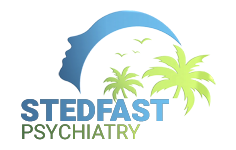Helping You Stay Focused
ADHD
What is ADHD?
ADHD is one of the most common neurodevelopmental disorders found in children. It is first diagnosed in childhood and often lasts much later into adulthood. Children with ADHD disorders have trouble paying attention, controlling impulsive behaviors or be overly active.
What are the symptoms of ADHD?
It’s normal for any child to have difficulty focusing and behaving at one time or another. However, children with ADHD experience this more often and do not grow out of these behaviors. The symptoms continue as they grow into adulthood and can become severe and cause difficulty at school, home and with friends. A child with ADHD might do the following:
- Daydream or “zone out” often
- Have a hard time resisting impulses or temptation
- Lose things or forget where they put them
- Squirm or fidget
- Talk to often
- Making careless mistakes or taking unnecessary risks
- Have trouble taking turns with others
- Difficulty getting along with others
There are dominantly these three types of diagnosed ADHD, each child’s symptoms will depend upon which type they fall into:
- Predominantly inattentive presentation
- It can be hard for these individuals to organize or finish tasks they begin. They may not be able to pay attention to details or follow instructions and conversations. They are easily distracted and forget details of daily routines.
- Predominantly hyperactive-impulsive presentation
- This individual fidgets and talks a lot. It is hard to sit still for long periods of time, such as when eating or doing schoolwork. Smaller children may feel the need to run, jump or climb things constantly. These individuals feel restless and impulsive. They tend to interrupt others a lot, grab things from people, or speak at inappropriate times. It can be hard for this individual to wait their turn or listen to directions.
- Combined presentation
- Combined presentations are those which show symptoms of both the types listed above and the symptoms are equally present in the person.
Is ADHD a serious mental illness?
Attention Deficit Hyperactivity Disorder, also known as ADHD, is a severe mental illness and is associated with major impairment and a high comorbidity rate. ADHD is a condition that mostly affects children but can also be diagnosed later on in life as well (Adult ADD). An individual with ADHD usually exhibits signs of being impulsive, inattentive for long periods, frequent procrastination, periods of hyperactivity or issues starting and completing tasks. However, depending on the severity of ADHD, individuals may have trouble functioning normally in everyday life as well, even with medication to help ADHD.
Depending on the severity of the diagnoses of ADHD, it can be managed using a variety of strategies. ADHD is treated differently in children than in adults, and some strategies that are used on others may not be as effective on everyone. Some strategies to help manage ADHD include:
- Using prescribed medications including stimulants, non-stimulants, antidepressants or a combination of both.
- Psychotherapy which may include individual therapy, group therapy, cognitive behavioral therapy and dialectical behavioral therapy.
What kind of doctor can diagnose and treat ADHD?
If you are seeking to get an evaluation or treatment for you or a child for what might be ADHD, it’s important to seek out a qualified and licensed psychiatrist who can prescribe appropriate medication. While there are several types of medical professionals who have experience in dealing with ADHD, it’s best if you seek out a trained psychiatrist, as they specialize and work with mental health including disorders like ADHD. Our psychiatrists at Stedfast Psychiatry are qualified to assess both the mental and physical aspects of ADHD.
If you or someone you know may have ADHD and is looking for a medical professional to help diagnose and manage their ADHD, contact Stedfast Psychiatry today! We are available to offer our services Monday through Friday from 8:00 AM to 5:00 PM and Saturday to Sunday by appointment only. We serve patients from Boynton Beach FL, Palm Beach Gardens FL, Jupiter FL, West Palm Beach FL, Riviera Beach FL, Century Village FL, Lake Park FL, and North Palm Beach FL.

